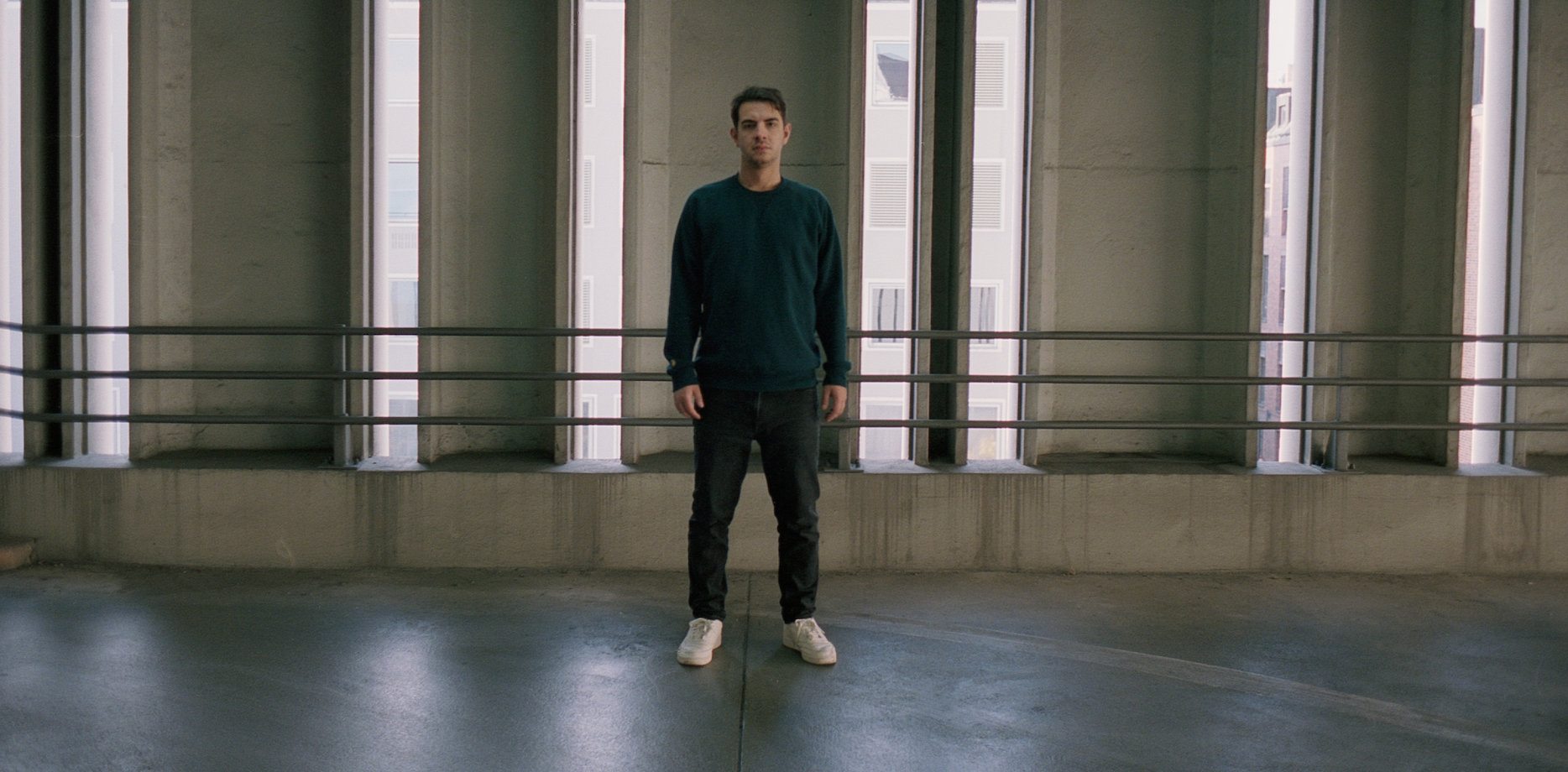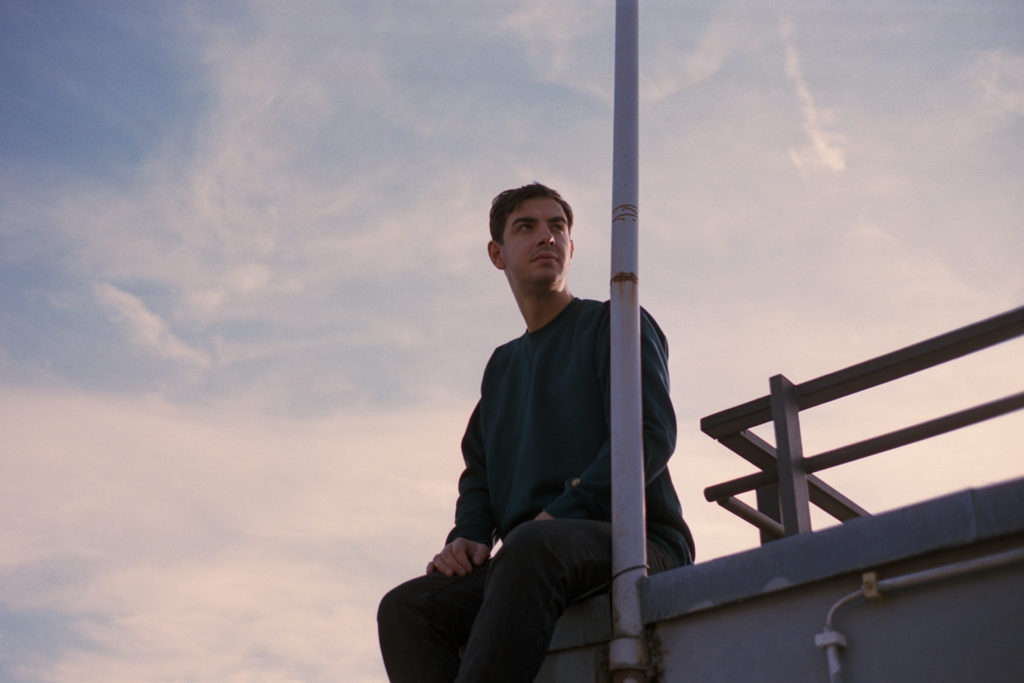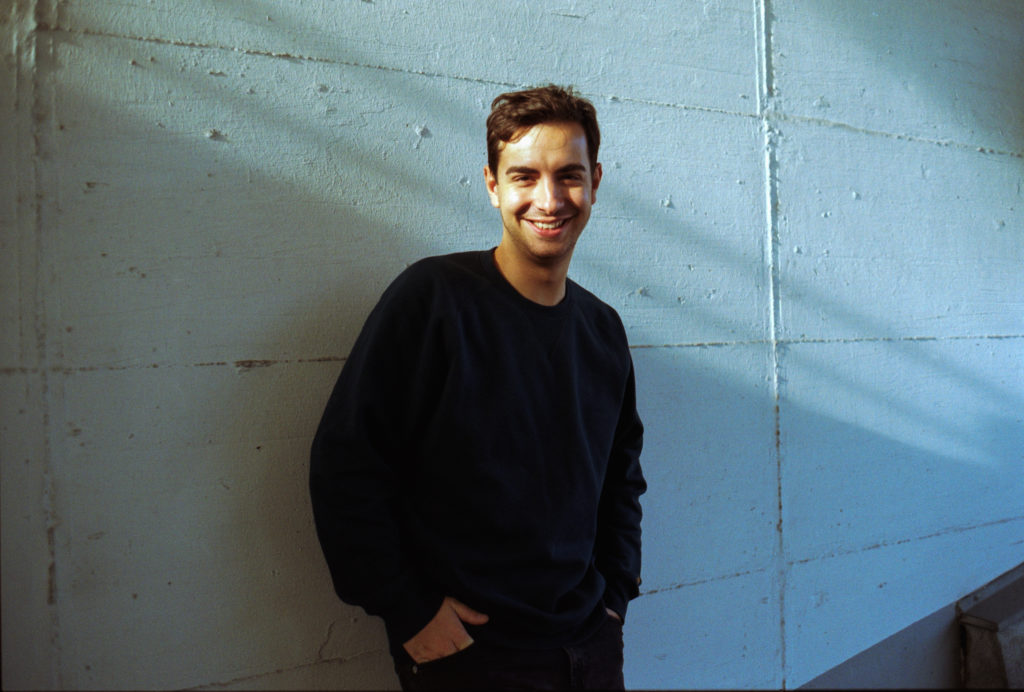Bubblin’ Up: Stenny
Ilian Tape's Italian mainstay discusses his debut album.

Bubblin’ Up: Stenny
Ilian Tape's Italian mainstay discusses his debut album.
Since debuting on Dario and Marco Zenker’s Ilian Tape in 2012, Stenny, 31, has established himself as one of the central names on the Munich label’s roster. The Italian DJ-producer, real name Stefano (his second name remains undisclosed) grew up on the outskirts of Turin and discovered a connection with electronic music through playing computer games such as “Wipeout 2097” or “Ghost In The Shell,” and began his attempts to replicate these sounds on is first computer around the age of 15.
Later quitting his studies in Architecture, Stenny committed to music full-time, supporting himself by working as an electrician, all the while playing records in his room and becoming better acquainted with the local party scene. “I liked it [architecture] but it was not really what I felt like I wanted to do in my life,” he recalls. “I didn’t take it seriously enough because my mind was constantly on music, and how to earn enough money to buy new gear to make music. It was a struggle, and I wasn’t happy.”
Stenny met the Zenker brothers in 2011 through Doctor Sax, an after-hours spot where he was often booked to play. He was familiar with their label, and he arranged a label night where he played the warm up, after which they began exchanging music. One such track that Stenny shared was “Orbital,” which the Zenkers snapped up for their Bias Jams—1 compilation, released in 2012. Around this time, Stenny teamed up with Andrea to build a studio, and the duo set about making music for the label. One year later, Stenny signed his first solo EP to the label, Solstice Deity.
Stenny EPs have been slow but steady since then. A move to Munich in 2014 held him back somewhat as his adapted to his new surroundings, as have various side-jobs, required to support himself. Now much more settled in his new surroundings, he’s more focused on music than ever, dividing his time between his studio, gigging, and working in Optimal record store. Earlier this year, he released the excellent Stress Test EP.
Upsurge, his debut album, forms the soundtrack to his past three years in Munich, and is his most refined work to date. It falls perfectly in line with the Ilian Tape broken-beat aesthetic, but Stenny contrasts the club-ready moments with more ambient soundscapes, the reflection of a sensitive and rapidly maturing artist adapting to life as a touring DJ-producer. In one of his first major interviews, Stenny sat down with XLR8R to talk us through his story so far.
How are you feeling about your debut album?
I am slowly starting to come to terms with it. After we had completed the final parts, like the artwork, mastering, and the test pressings, I needed to detach myself from it all just to process the whole thing, and so now I am not thinking about all the things that I cannot change or having any second thoughts. I’m now both a little excited and a little frightened, not that I care so much about what people will think about it, but more that I’ll listen to it and regret certain choices and these kinds of things. ….because I was working on it for three years, it was not always easy to maintain an overview, so it feels more like a palette of emotions. This might be the concept.”
Were you working on it for a long time?
Yes, but it’s difficult to really say how long, but I’d guess between two years and three years. I started to have the idea of making music in this format, like an album, about five years ago, but at that point I was struggling. That was a big period of change in my life; I had moved to Munich and it took me a while before I had a proper setting to make music again, because I couldn’t find a space for my setup and I was living in different places. At one point I found a studio space, and that’s when the album really began. I made some of the tracks around three years ago, and I made some of them a lot more recently. The album was made across this time span.
Is there a concept to it?
Not really, it’s not a conceptual album. It’s more my take on different styles of electronic music that I like and feel inspired by. I wanted to create something that I’d like to listen to. Also, because I was working on it for three years, it was not always easy to maintain an overview, so it feels more like a palette of emotions. This might be the concept.
“…..I am not really seeking people’s opinions about my music. It would confuse me more and more, because I have sort of a clear idea of how it has to sound, but often my mind cannot fully translate it yet.”
—Stenny
Have you shown it to anyone for their opinion?
Nope, only to the Zenker Brothers. Some of my closest friends may have heard something here and there, but not the full thing. I hope it doesn’t sound wrong but I am not really seeking people’s opinions about my music. It would confuse me more and more, because I have sort of a clear idea of how it has to sound, but often my mind cannot fully translate it yet. I prefer to sit with myself and process it until I feel it’s ready and then show it to someone. I am open to criticism but I prefer that this happens when the job is done. I am not sure if this makes sense or not but it helps me to deal with self-confidence.

How would you describe your childhood, growing up in Turin?
I grew up in the outskirts of the city, it was quite boring and dark, and there wasn’t much stuff to do.
Why did you decide to move to Munich in 2014?
Before I moved, I was visiting the city pretty often and so I knew I had a community here. I had always planned to leave Italy because I couldn’t find my place there; it was difficult to do what I wanted to do, like to make music and DJ on a regular basis, and so I began thinking of moving somewhere else. In Munich I felt really welcome and so, considering that the label and my friends are there, I decided to move and it’s now become my permanent home. I still miss Turin a lot, and all my friends and my family—this separation is not easy to deal with—but I still try to make it back there as much as possible.
Was it a difficult transition?
Yes, I really struggled with a lot of things when I arrived in Munich in 2014. I had to have several jobs during the day, and it was hard getting my shit together with paperwork. It was a huge weight on my brain, and money-wise I was always worrying. I moved into three different flats in four years, so it was complete chaos. My friends really helped me through and made my life a bit easier. They actually found the studio space we are sharing now and this was a huge blessing, because it allowed me to make music again at any hour of the day. At one point I began to work in a record store and this exposed me to so much music, I think this gave me a lot of input and a consistent financial support.
Can you name some of the records or artists you’ve found that influenced you?
It‘s going to be a long list, but first name coming in my mind are obviously Mike Banks, Shake Shakir, Drexciya, Mark Bell, Photek, Mick Harris, and more recently Lee Gamble or Lanark Artefax.
How much influence have the Zenker brothers had on your music?
Of course, they’ve had a relevant influence on me, but it’s not only them. There’s also the others on the label, like Andrea, Skee Mask, Konrad Wehrmeister; over these years, the label has grown, and Dario and Marco have always managed to bring out something fresh and inspiring, that’s also new to us. I don’t always know what’s in the pipeline, but when I see and hear what’s going on I feel really inspired by it.
“I am a pretty bipolar person; I have to deal with moments of very high energy and incredibly low ones, some days I just can’t move, and my music output has really been affected by that.”
—Stenny
Have they shaped your sound a lot?
They’ve constantly encouraged me to follow my path and stay honest to myself. My sound, I would say, morphs and changes with time but it’s also related to how I feel on a daily basis. I am a pretty bipolar person; I have to deal with moments of very high energy and incredibly low ones, some days I just can’t move, and my music output has really been affected by that. Also, my skills and abilities in the studio have grown as I’ve spent more time in there. On this record, in particular, I wanted to work much more on new techniques to do something new that I haven’t done before. Or at least try.
How exactly were you trying to grow as an artist?
I wanted to work much more on new techniques and to do something new that I haven’t done before, but still trying to sound as myself. Technically, I used more software than ever before. Most of my older tracks were recorded in one take, and they were very impulsive because I didn’t have much time to make music, so I was being a lot more direct. Growing up and listening to more music, I wanted to reach a point where my stuff has the same attitude but it’s more precise, so I tried to use effects in a better way, and to pay more attention to details. I also started to build some of my own chains and M4L units.

What is it that appeals to you about making music?
It’s the art form that touches me in the deepest way. When I was a teenager, I suddenly became interested in making music. To be honest, it was just so natural; I realised that I wasn’t really into other things like football or cars or whatever. I studied at art school so I’ve been exposed to art in many different forms, but I’ve always been primarily a music head. I wanted to know how music production works, and I become really passionate about this. I think it turned into an addiction; it was always in my brain, no matter what I was doing. I just was thinking about making music all of the time. And it’s still like that nowadays!
You’re doing music full-time now, correct?
Basically, yes. I work in a record store twice a week but my whole life is focused on music. With playing gigs and having a job, time for the studio is limited, so I think I’m going to need more of it soon.
How do you spend your free time; what else interests you?
I don’t really have much of it. When I can, I take some days off and visit my family, but otherwise I just stay at home and dig music.
Do you feel satisfied with your music yet?
Not yet. There’s some tracks that I am happy with, but I just don’t feel easily satisfied in general. I like to keep myself motivated and open for challenges. I’m certain that I can grow a lot more this way.
Are you enjoying your life, as you begin to tour more?
I’m feeling quite good right now, but the pressure is starting to increase.
I definitely love what I am doing. However, with touring and making music, there are some issues that you aren’t aware of, and I am feeling that I have to be more focused now. Especially with being quite bipolar, because it really affects your life. There are some days where I just need to chill and think about the next step, but there isn’t always enough time.
What are your long-term ambitions with music?
I would like to establish myself as an artist through different projects. At one point, I can imagine running a label and I would really like to develop some skills in the mixing/mastering field. I can’t make too much of a plan in the long term as things are moving really fast and I’m not sure what the near future will look like.
What’s next on your horizon?
I actually just took a small break. I needed to rewire my brain, and I didn’t want to immediately start working on new music. The next step will definitely be focusing on new material and eventually a new album, but I am trying to take it easy right now; touring is becoming more intense but there are still periods where it’s discontinuous, and I will try using those down periods for making as much music as possible.
All photos: Manuel Schuller
Upsurge LP lands November 19, with pre-order here.

